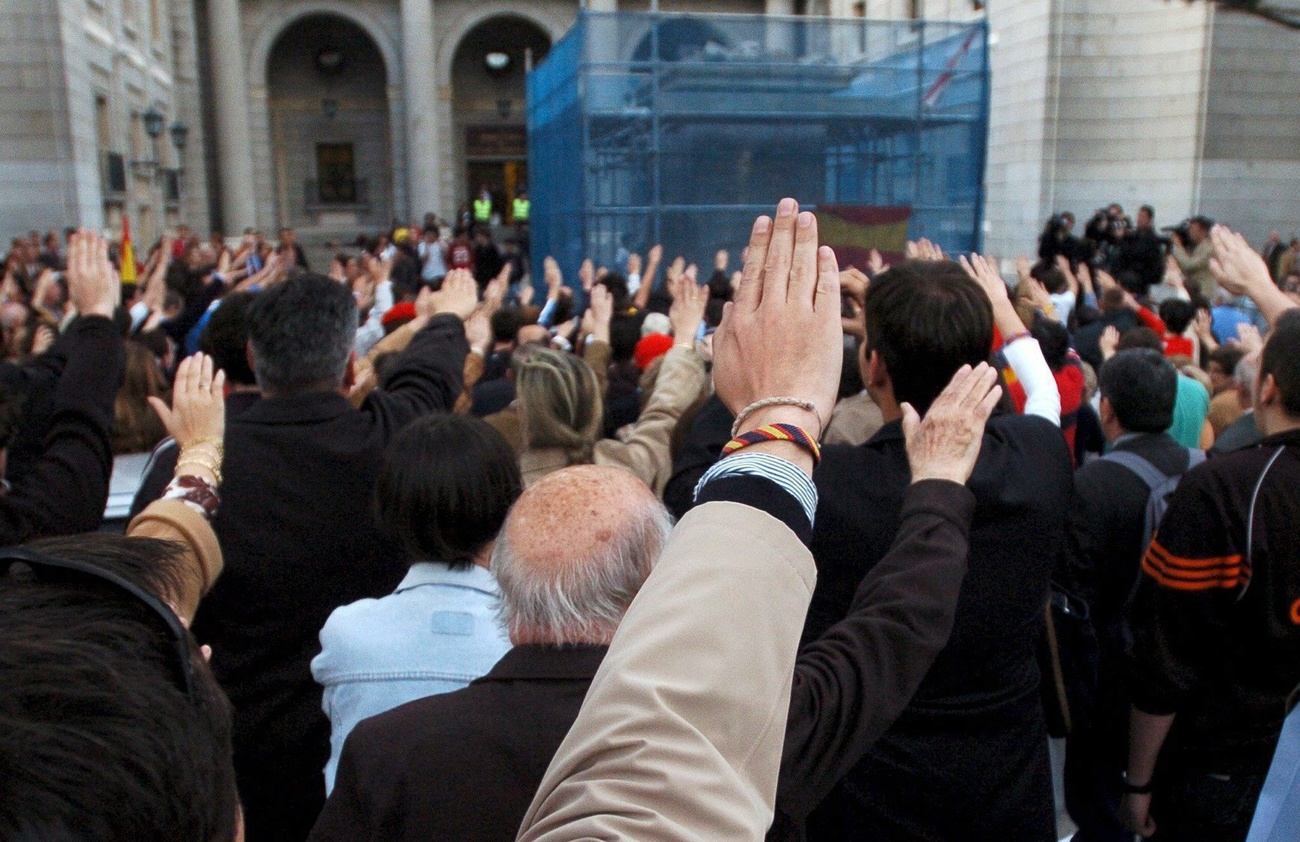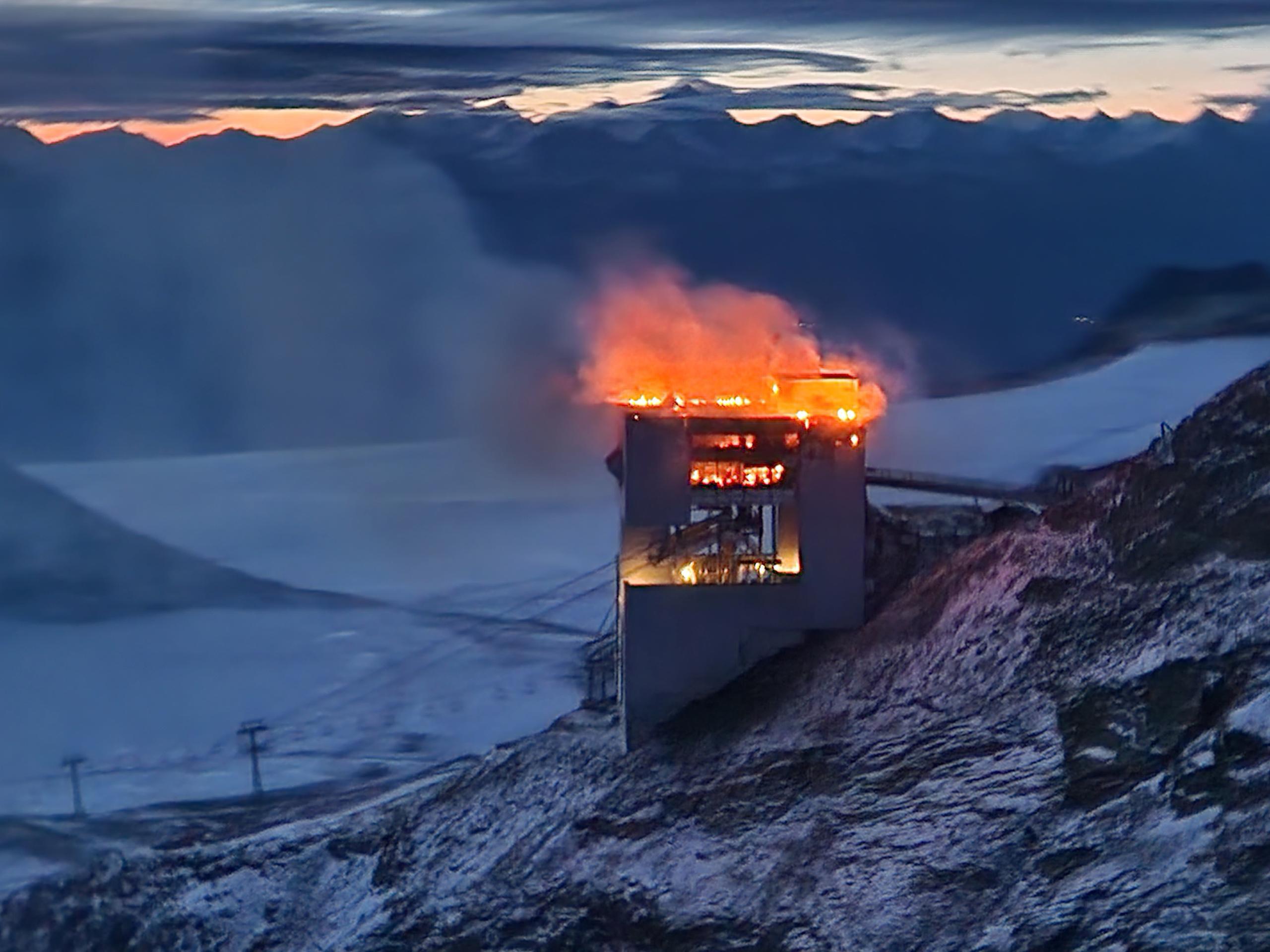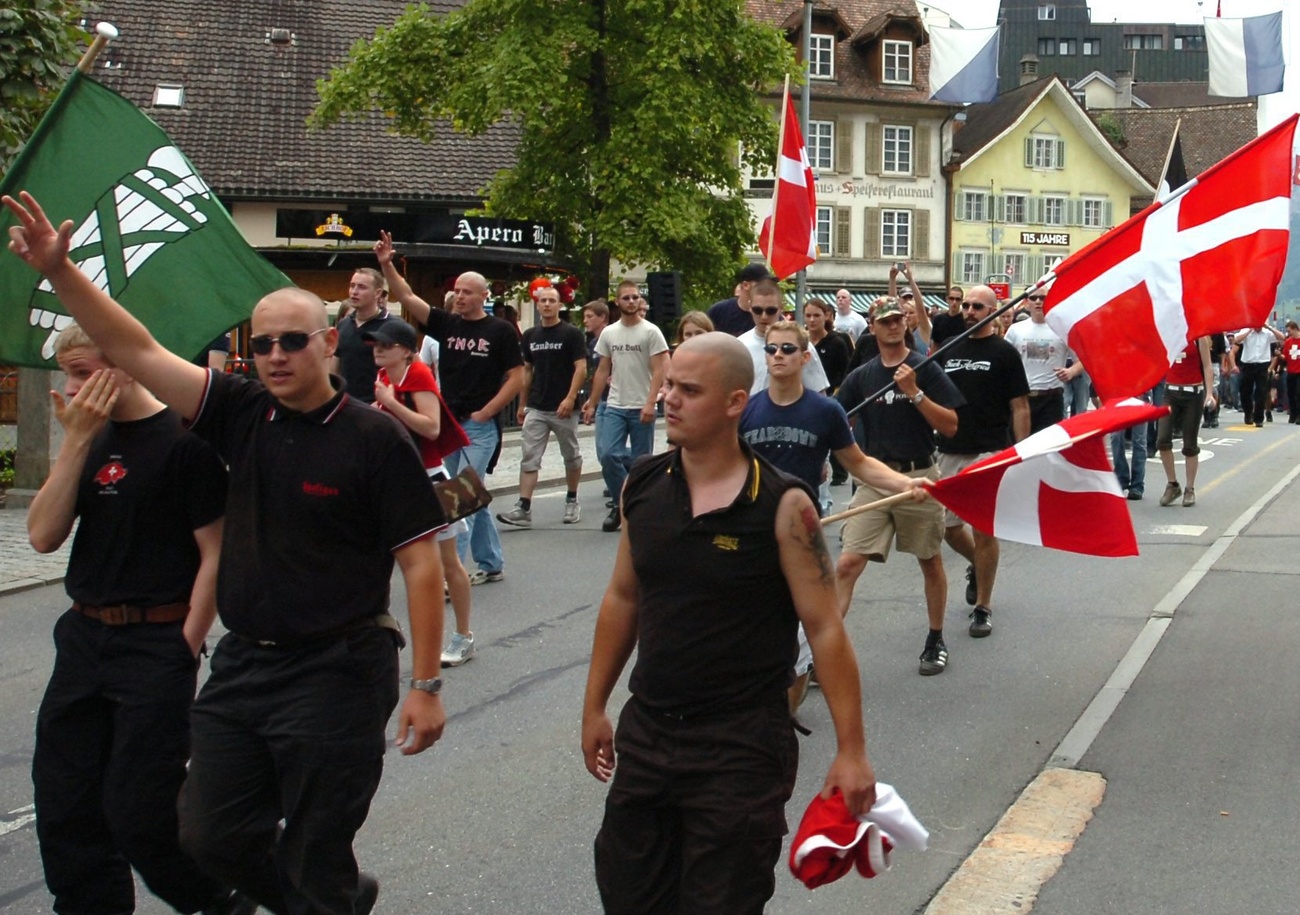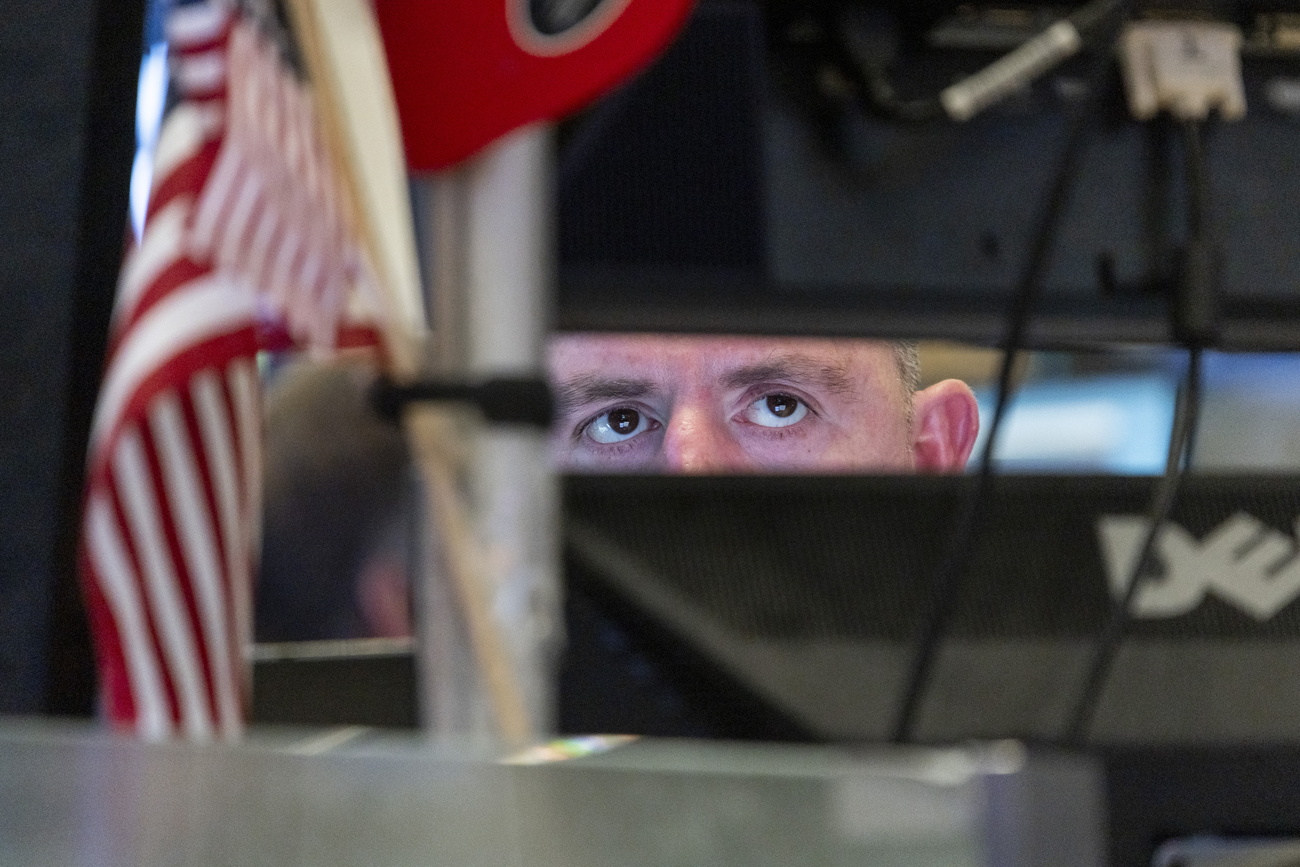
Switzerland Today
Greetings from Bern!
Making a Nazi salute or displaying a swastika is not punishable in every case in Switzerland. However, demands are getting louder for this to change, including among the Swiss Abroad. Here are the latest news and stories from Switzerland on Tuesday.

In the news: A popular tourist ski area on a 3,000-metre high Swiss glacier is set to re-open in November following a fire that devastated a mountain-top restaurant.
- On September 19 a fire broke out at the Botta restaurant situated above Glacier 3000 at Les Diablerets in canton Vaud. The Glacier 3000 company that runs the facilities said today that the cable car would re-open on November 12, having determined that it was not damaged by the fire.
- Pensions in Switzerland should in future be topped up to fully account for the rising cost of consumer goods, parliament has agreed. The cost of goods and services rose 3.5% in August compared with the same month in 2021. While the rate of inflation is not as high as in other countries, parliament felt compelled to act to stave off the threat of some pensioners falling into poverty. A nationwide vote two days ago raised the retirement age of women from 64 to 65 in a bid to prop up the creaking state pension coffers.
- The Swiss state spends around CHF500,000 ($506,000) a year keeping track of the growing wolf population. The money is part of a CHF1.1 million annual funding package used to monitor all large carnivores in Switzerland, including lynx and bears. A total of 1,000 sheep and cattle have already been killed by wolves this year in cantons Valais, Graubünden, Glarus, Ticino and Uri.

Displaying a Nazi symbol or making a Nazi salute in public is not always a crime in Switzerland. A number of parliamentary motions – and the Council of the Swiss Abroad – now want zero tolerance. Initially hesitant, the government is now looking into the matter.
At a rally protesting against anti-Covid measures in September 2021, a demonstrator made a Nazi salute right in the middle of Bern’s Old Town. The public prosecutor’s office consequently issued the demonstrator with a penalty order for improper behaviour. However, the man successfully appealed. There was no legal basis for a conviction, a local court ruled.
A neo-Nazi who made the same salute in 2010 on the Rütli Meadow, considered the birthplace of Switzerland, also ended up being acquitted. The Federal Court ruled in 2013 that the man had been expressing his own convictions among like-minded people, and that this was not a criminal offence. But had he been making the salute to spread Nazi ideology, he would have been punished under Swiss anti-racism laws.
These examples show that Switzerland has a certain tolerance when it comes to making Nazi symbols and gestures. Nazi salutes and swastikas and so on are banned only when used for propaganda purposes. Political efforts to scrap this distinction have been ongoing since 2003. Majorities in government and parliament have so far judged freedom of expression to be more important, but the perception seems to be shifting. Three motions on the issue have been submitted in parliament – one from the centre right and two from the left.
The Council of the Swiss Abroad also expressed support in March for criminalising all use of Nazi symbols and gestures in public. On behalf of the delegation from Israel, Ralph Steigrad noted that Switzerland had been debating the issue for almost 20 years: “It now needs to act and follow the examples of other countries.” This did not mean stopping symbols from being shown in teaching material for purely educational purposes, he stressed.
The government initially wanted to leave things as they were. Even though Nazi symbols and salutes were “shocking”, they had to be tolerated as an exercise of freedom of expression, it wrote in reply. Educating people was better than enacting a ban. Now, however, the government appears to have overcome its initial hesitancy amid reports that Justice Minister Karin Keller-Sutter is looking into the matter after all. She said her ministry would now see what legal options are available.
Keller-Sutter also wrote a reply to the Organisation of the Swiss Abroad (OSA) – via which the Council of the Swiss Abroad had expressed its concerns to the government – assuring it that the government was well aware of the increase in anti-Semitic incidents in Switzerland.
More

In compliance with the JTI standards
More: SWI swissinfo.ch certified by the Journalism Trust Initiative









